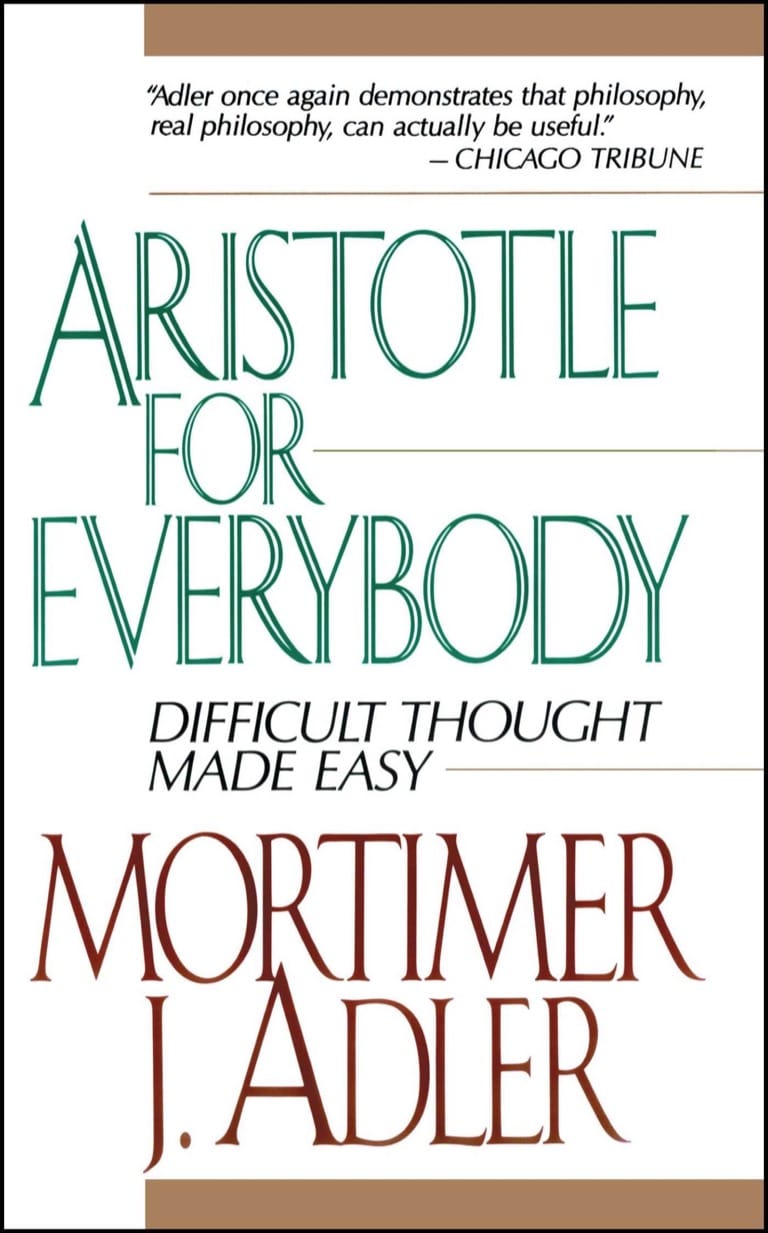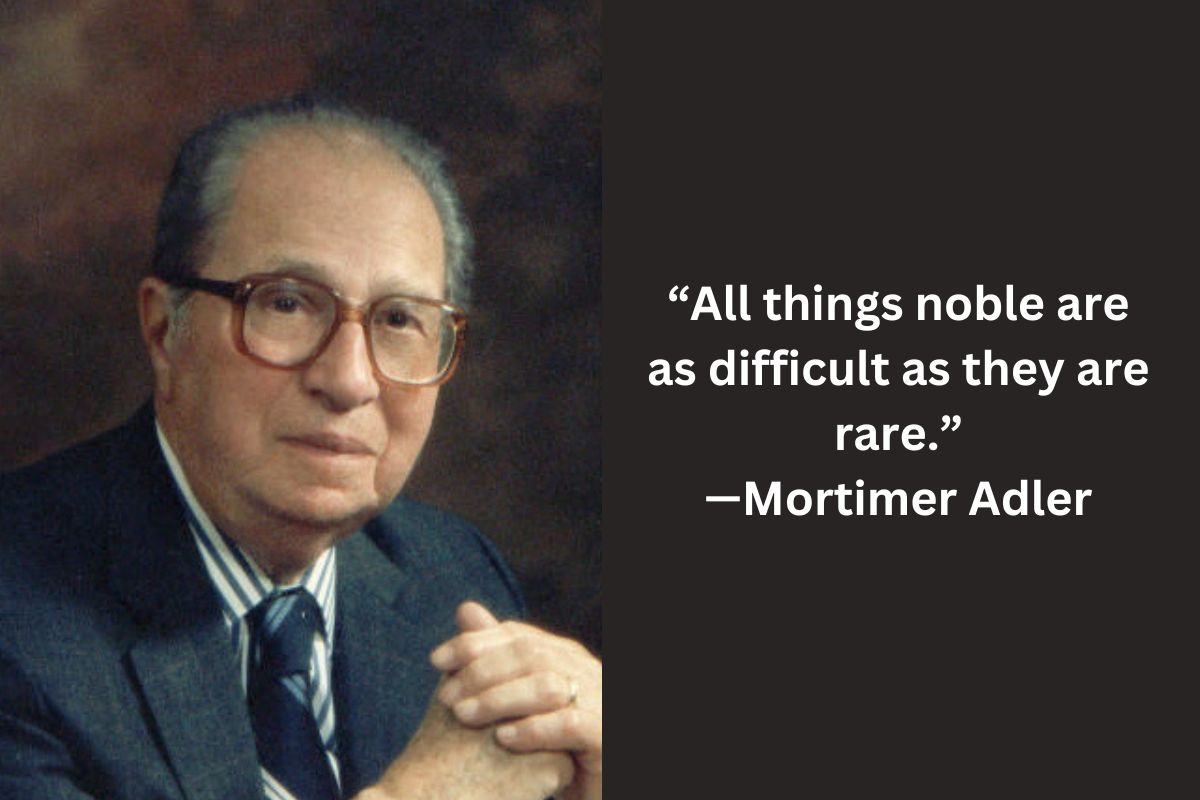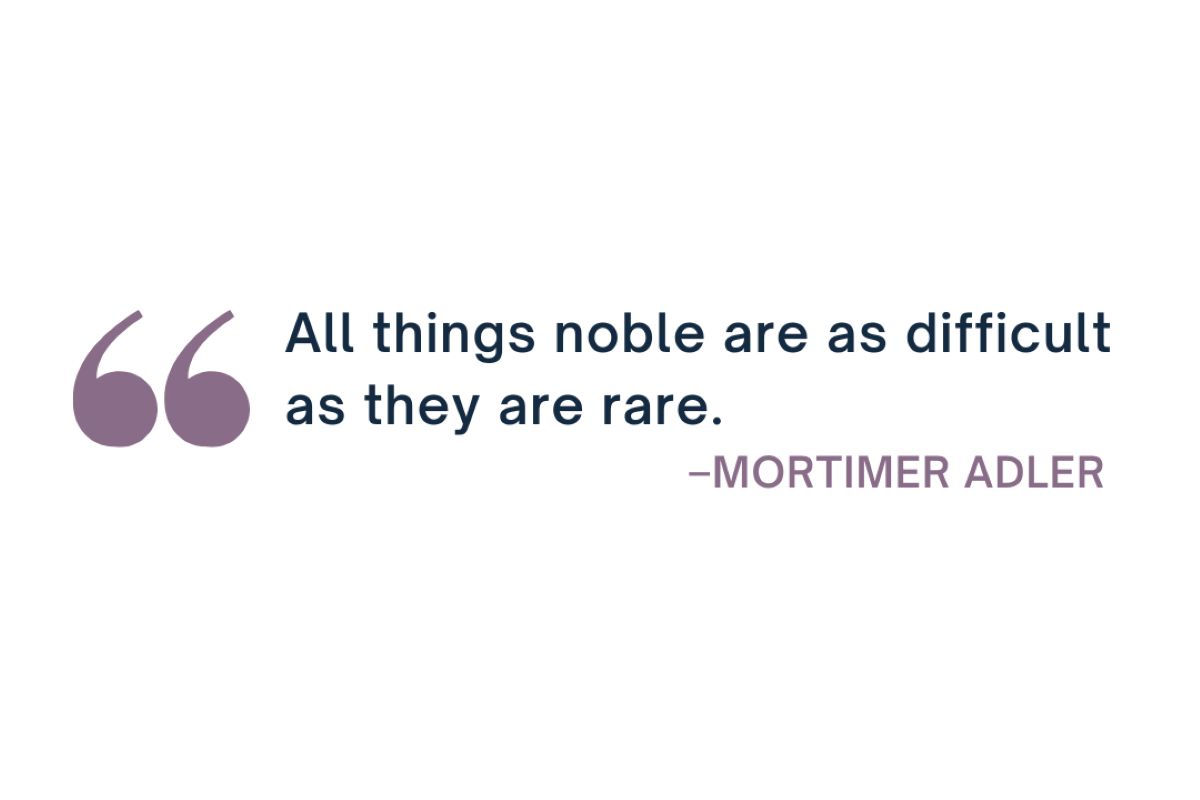 “By doing just things we become just; moderate things, moderate; and courageous things, courageous,” Aristotle wrote in his meditation on virtues as habits. Revisiting this timeless advice reminded me of an interview Mortimer J. Adler (December 28, 1902–June 28, 2001) gave to Bill Moyers about his groundbreaking book Aristotle for Everybody. As the two sat opposite each other, they discussed the three cardinal virtues: temperance, courage, and justice. At some point in the conversation, Adler said that all three are not distinct but actually one: If one is to be called virtuous, one has to possess full virtue, not partial virtue. Here’s the video with highlights underneath.
“By doing just things we become just; moderate things, moderate; and courageous things, courageous,” Aristotle wrote in his meditation on virtues as habits. Revisiting this timeless advice reminded me of an interview Mortimer J. Adler (December 28, 1902–June 28, 2001) gave to Bill Moyers about his groundbreaking book Aristotle for Everybody. As the two sat opposite each other, they discussed the three cardinal virtues: temperance, courage, and justice. At some point in the conversation, Adler said that all three are not distinct but actually one: If one is to be called virtuous, one has to possess full virtue, not partial virtue. Here’s the video with highlights underneath.
ADLER: If you’re aiming at the right end by temperance and courage, you can’t [at the same time] aim at the wrong end by injustice. [So] you’re either aiming at the right end, in which case you have the full virtue; or you’re aiming at the wrong end, in which case you have no virtue. … That’s why there are probably so few people who are virtuous.
MOYERS: Doesn’t the fact that we all fall so far short of what Aristotle says is good or virtuous life make him largely irrelevant?
ADLER: No. If I may use the closing line of Spinoza’s Ethics, “All things noble are as difficult as they are rare.”
Do you agree with Mortimer J. Adler? Here’s my thought bubble: no one is perfect and it’s the striving towards the virtuous behavior that counts the most, especially if you have to deal with unconscious people on a daily basis. Complement with Aristotle on virtues as habits and then revisit Eknath Easwaran who famously wrote, “The only way to influence people for the better is through your personal example.”

I’m a freelance writer with 6 years of experience in SEO blogging and article publishing. I currently run two websites: MindfulSpot.com and OurReadingLife.com. While you’re here, get the latest updates by subscribing to my newsletter.








